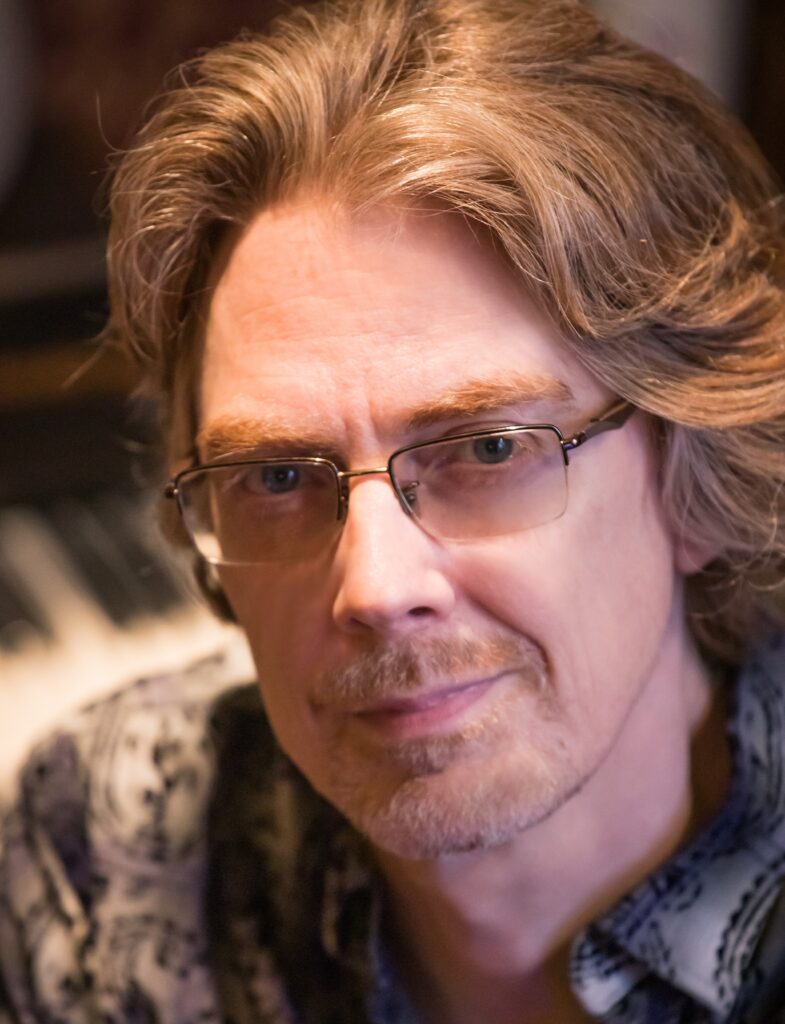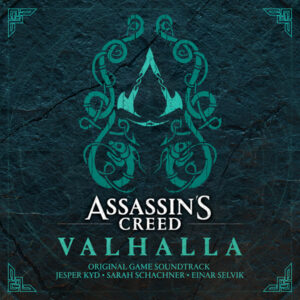Interview: Jesper Kyd Talks Assassin’s Creed Valhalla


Jesper Kyd is a BAFTA award-winning Danish film, television and video game composer. He is known for his experimental approach to crafting iconic music for blockbuster video game franchises and pushing musical boundaries.
Kyd has received top honors from the British Academy of Film and Television Arts, Critics Choice Film Awards, Hollywood Music in Media Awards and Game Audio Network Guild. His music is regularly performed worldwide, such as the Danish National Symphony, Krakow Film Music Festival and WDR Symphony.
His recent work includes Borderlands 3, State of Decay 2, TUMBBAD and Assassin’s Creed Valhalla, which had its soundtrack released digitally by Lakeshore Records on Nov. 13, 2020.
We reached out to Kyd to discuss all things music and his recent release for Ubisoft’s Assassin’s Creed Valhalla.
SSM: What or who inspired you to work as a composer?
JK: When I was 13, I got a Commodore 64 computer. The C64 has a built-in analog soundchip which enabled a whole new level of computer music to be created. It was so impactful it created a new music genre that’s still around today, called Chip Music (chiptune), 8bit music or SID music (named after the SID chip inside the C64). Listening to C64 music composers as well as artists like Mike Oldfield, Vangelis and Jean Michel Jarre were early influences at the start of my music-making career.
The projects I work on have also been a huge inspiration. I write a lot of music for fantasy and sci-fi genres as well as historical-inspired scores so creating atmosphere, a place to travel to musically, is one of my favorite aspects. Finding ways to create unique and original scores is what I look for, whether it’s a film, a TV series or game. It’s important to work with great people in a creative, supportive and friendly environment so a maximum level of creativity can be achieved.
SSM: You have been scoring video games since your teens. What are some of the biggest changes you have noticed in gaming music from when you started and now?
JK: These days more bands and film/TV composers are scoring games, and writing music for games is much more desirable compared to when I started out. Back then composers often had total creative control on the music style and lots of input on the implementation of the music. These days there are audio departments responsible for implementing when and how the music should play and that makes it possible for composers who have never worked on game scores before to write music for games. But in general, things haven’t changed that much for me, since I work on projects where I’m hired to be creative and to bring something unusual or new to a project.
Other changes include bigger live budgets since AAA games often have music production budgets the size of AAA movies. For example, Assassin’s Creed Valhalla was created by Ubisoft Montreal in conjunction with 16 other Ubisoft game studios creating content for the game.
SSM: Assassin’s Creed is such a successful franchise, spawning sequels, novels, action figures and a movie. Can you speak about how you began working on the initial project?
JK: Sure, the first Assassin’s Creed game was shown to me through concept art at a video game trade show behind closed doors. I could hardly believe what Ubisoft was trying to achieve and no-one had attempted anything like this before. Assassin’s Creed helped give birth to a whole new genre of open- world games, where you could climb any building and go anywhere in the world. The parkour aspect really made for a whole new experience; it was like a platforming game in a realistic detailed open-world.
The first Assassin’s Creed was a huge challenge and we had to invent and figure things out as we went along. The foundation of Assassin’s Creed was created here and that included the music style which to this day uses many of the same building blocks we came up with for AC1. The first Assassin’s Creed was a huge blockbuster and these days the series has sold over 155 million games making it one of the most successful video game franchises of all time.
SSM: For Assassin’s Creed Valhalla, was there a specific tone you wanted to convey to gamers?
JK: It was important that the score felt atmospheric and authentic to the time period. The vast open spaces in nature, from fjords to snow-covered mountain tops, from forests to rolling hillsides, it needed an open, epic and vast music style that gave a sense of scale. There was no comfort of city living, like many prior Assassin’s Creed games, this game takes place outdoors in rugged nature and at times hostile environments.
I recorded live instruments with a lot of air and used vintage equipment to help simulate instruments being recorded outside. Also, the Animus influences the music with a futuristic tone, meaning the live recordings are run through a lot of effects and filters to help remind us the game is played in a simulator.
SSM: What’s coming up next for you?
JK: Right now I’m scoring a feature animation fantasy film which is a lot of fun to work on. So much work goes into a single frame of animation, which takes hours to render. It’s a totally different way to compose music compared to video games.
Check out the Assassin’s Creed Valhalla soundtrack below and follow Kyd on Instagram @kyd.jesper!





